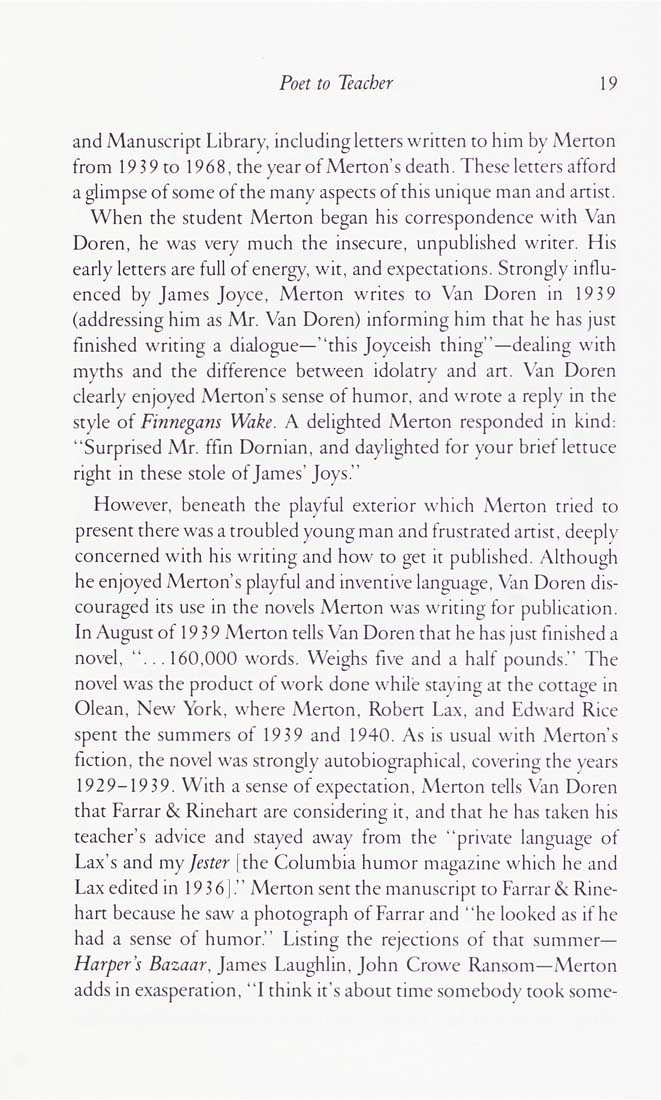Columbia Library columns (v.39(1989Nov-1990May))
(New York : Friends of the Columbia Libraries. )
|
||
|
|
|
|
| v.39,no.1(1989:Nov): Page 19 |

Poet to Teacher 19 and Manuscript Library, including letters written to him by Merton from 1939to 1968, the year of Merton'sdeath. These letters afford aglimpseofsomeof the many aspects of this unique man and artist. When the student Merton began his correspondence with Van Doren, he was very much the insecure, unpublished writer. His early letters are full of energy, wit, and expectations. Strongly influ¬ enced by James Joyce, Merton writes to Van Doren in 19 39 (addressing him as Mr. Van Doren) informing him that he has just finished writing a dialogue—"this Joyceish thing"—dealing with myths and the difference between idolatry and an. Van Doren clearly enjoyed Merton's sense of humor, and wrote a reply in the style of Finnegans Wake. A delighted Merton responded in kind: "Surprised Mr. ffin Dornian, and daylighted for your brief lettuce right in these .stole of James' Joys." However, beneath the playful exterior which Merton tried to present there was a troubled young man and frustrated artist, deeply concerned with his writing and how to get it published. Although he enjoyed Merton's playful and inventive language. Van Doren dis¬ couraged its use in the novels Merton was writing for publication. In August of 19 3 9 Merton tells Van Doren that he has just finished a novel, "... 160,000 words. Weighs five and a half pounds." The novel was the product of work done while staying at the cottage in Olean, New York, where Merton, Robert Lax, and Edward Rice spent the summers of 19 39 and 1940. As is usual with Merton's fiction, the novel was strongly autobiographical, covering the years 1929-1939. With a sense of expectation, Merton tells Van Doren that Farrar & Rinehart are considering it, and that he has taken his teacher's advice and stayed away from the "private language of Lax's and my Jester [the Columbia humor magazine which he and Lax edited in 19 3 61." Merton sent the manuscript to Farrar & Rine¬ hart because he saw a photograph of Farrar and "he looked as if he had a sense of humor." Listing the rejections of that summer— Harper's Bazaar, James Laughlin, John Crowe Ran.som—Merton adds in exasperation, "I think it's about time somebody took some- |
| v.39,no.1(1989:Nov): Page 19 |







